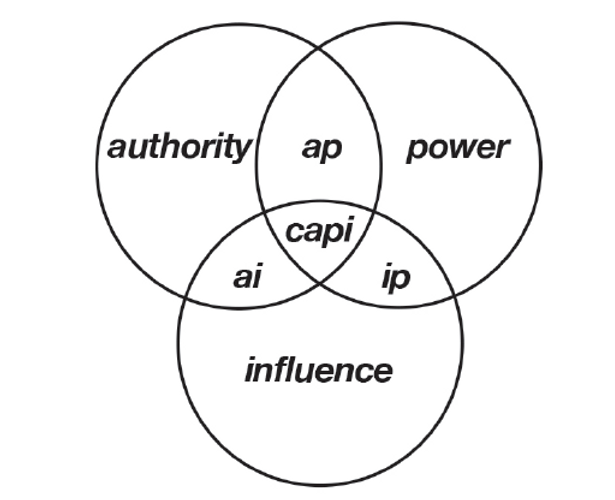
Managers as “Judges”
When we talk about roles of managers there are many theories and approaches to this. One topic I would like to highlight here is the role of managers as “judges”, but not only when dealing with conflicts or solving employee disputes, but this time when making decisions. Also, when I say “judges” I do not mean judging people.
Firstly, let’s find answer to one question. How many direct subordinates should a manager have?
The number of subordinates reporting to a manager or supervisor is called span of control.
Wide/large span of control usually means a single managers or supervisor overseeing a large number of subordinates, narrow span of control means a single manager or supervisor overseeing few subordinates. Both has its positive and negative sides.
There is usually not a golden rule about how many subordinates should be reporting to a manager/supervisor. Usually it is accepted that the number should not be more than 7 in order to be more efficient.
The traditional approach was that, the CEO of the Organization (or if we talk about the departments/functions, then department/function head) was the most experienced, wise and knowledgeable person in the Organization/department. He/she would instruct/tell their subordinates about what to do and the others would follow.
Now it has changed. Now Organizations depend much on their employees. The Organization must have the competent people in place, in all levels, to make sure that the right decisions and steps are being taken and implemented in the respective functions/departments. Their contribution in decision making is a must.
The CEO of the Organization needs to have general knowledge about the business and make decisions on the bases of information these professionals bring/advice to him/her.
Let me explain with an example.
Let’s say in a mid-size organization there are functions such as Finance, HR, Marketing, IT and Sales reporting to the CEO. Would you expect the CEO know the details (or be an expert) for all the functions reporting to him/her and tell them what to do in their respective fields or the people reporting to the CEO for various functions tell/consult the CEO, in their respective fields. Which one would you think to be more useful?
In my experience, I have heard many complaints from people working in various organizations, who were experts in their fields, but still faced their managers telling them what to do. Their complaints were mostly such as, they were not being listened to, not valued, were not empowered and could not make any decisions independently. Which made them doers, instead of initiators.
One of my friends was leading the Marketing function at one company, where the CEO would see himself as an expert in Marketing and would block him. He couldn’t make any decisions, he was always told to do things, his views/initiatives were never taken into account, even he was criticized for them.
When employees face such situations, they become unhappy and less productive and they seek chances to leave the organization. People want to be listened and valued. They want to be challenged and also seek development.
“I know everything” mindset does not work.
Managers are effective when they trust their teams and empower them. Empowerment is what motivates and develops people. Of course, first you need to make sure you have the right people in place, who can deliver results and not let the company down.
As a manager, if you think you are the cleverest person in the Organization, and you don’t need anybody’s advice when making decisions, you get to not to listen to your employees. As a result, your decisions become obstacles and many people resist to them.
Let’s never forget that, the higher you go in the Organization, it is more difficult to make decisions. There are legal, ethical, moral and financial impact of your decisions, which you need to always take into account.
I come to the point why managers need to be good “judges” is when making decisions, to involve right people with the right capabilities, to listen to them, to get all the details, to feel sincerity or any bias they are bringing, and to make the right decisions involving others. In the end, as the CEO, the final decision maker is you. But involving others, opens new doors for you. You should lay groundwork for the discussion, involve each member, whose cooperation you need, and convince them that their inputs are valued, appreciated and taken into account. They need to understand that, they are all on the same boat with you, and have common interests to solve problems.
I have seen such managers in my life, before making important decisions, would involve the right people with right capabilities, would listen to their views and would let various related functions to challenge each other, observe them to see all the negative and positive sides and then make the final decision.
And also, I am sure we had all seen totally opposite of this as well, whose egos, would never let them to listen to others, when making decisions. It is of course sometimes also the culture issue.
On his book, Mastering Change, author and management expert Dr. Ichak Adizes explains one term called, CAPI, (or CAPI teams).
He explains that, in Organizations, for decision making one needs a complementary team. For implementation, one needs to coalesce what he calls, CAPI, the cooperation of people with Authority, Power and Influence.
That is when you expect the right decisions to be made and get the buy-in of others for better implementation of the decisions made.
RELATED BLOGS

When work experience means saving lives: Over 50k masks a day produced by Vocational Education grads to suppress Covid-19 in Azerbaijan

Mehriban Aliyeva: The personality whose name is her signature



